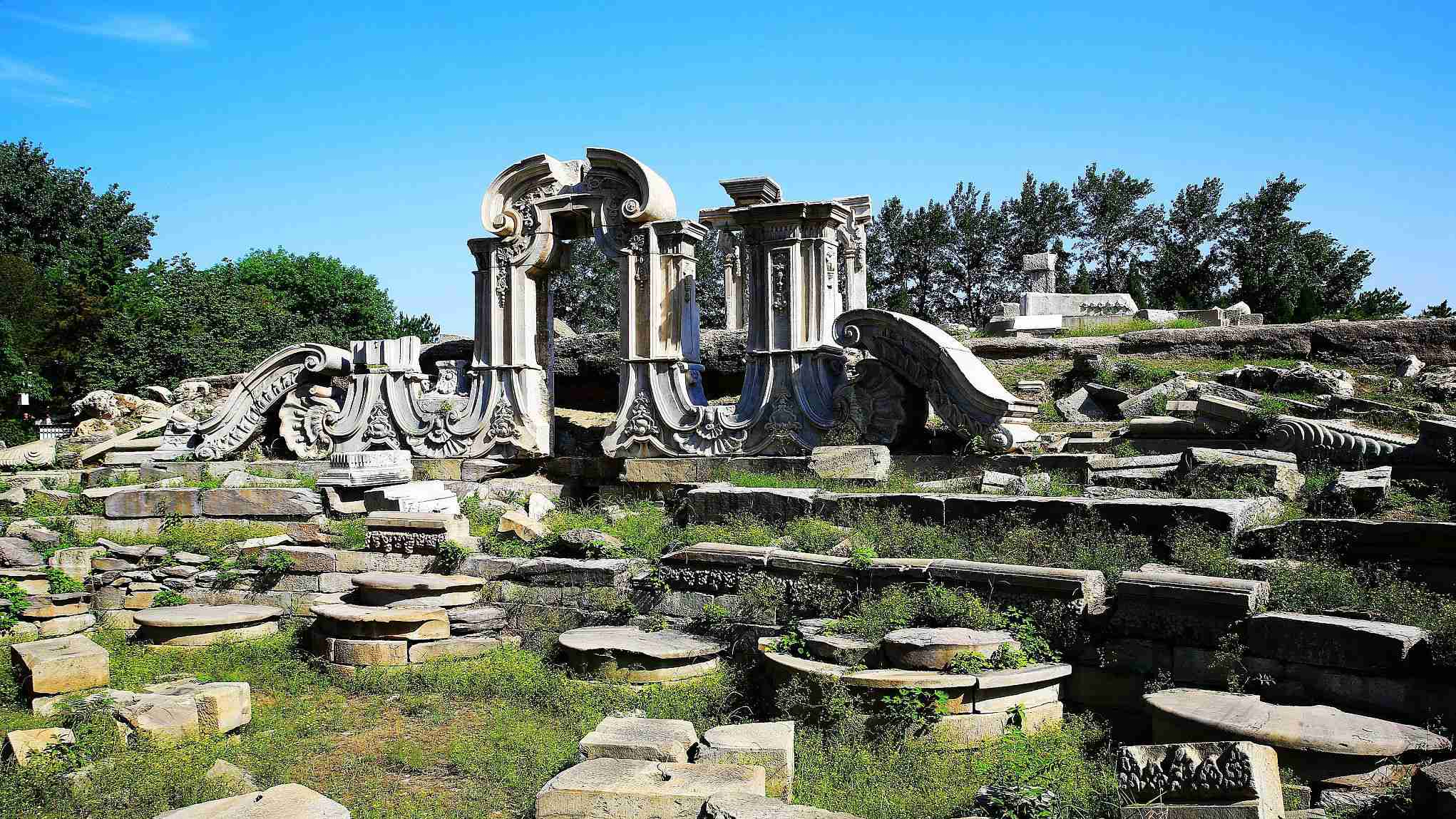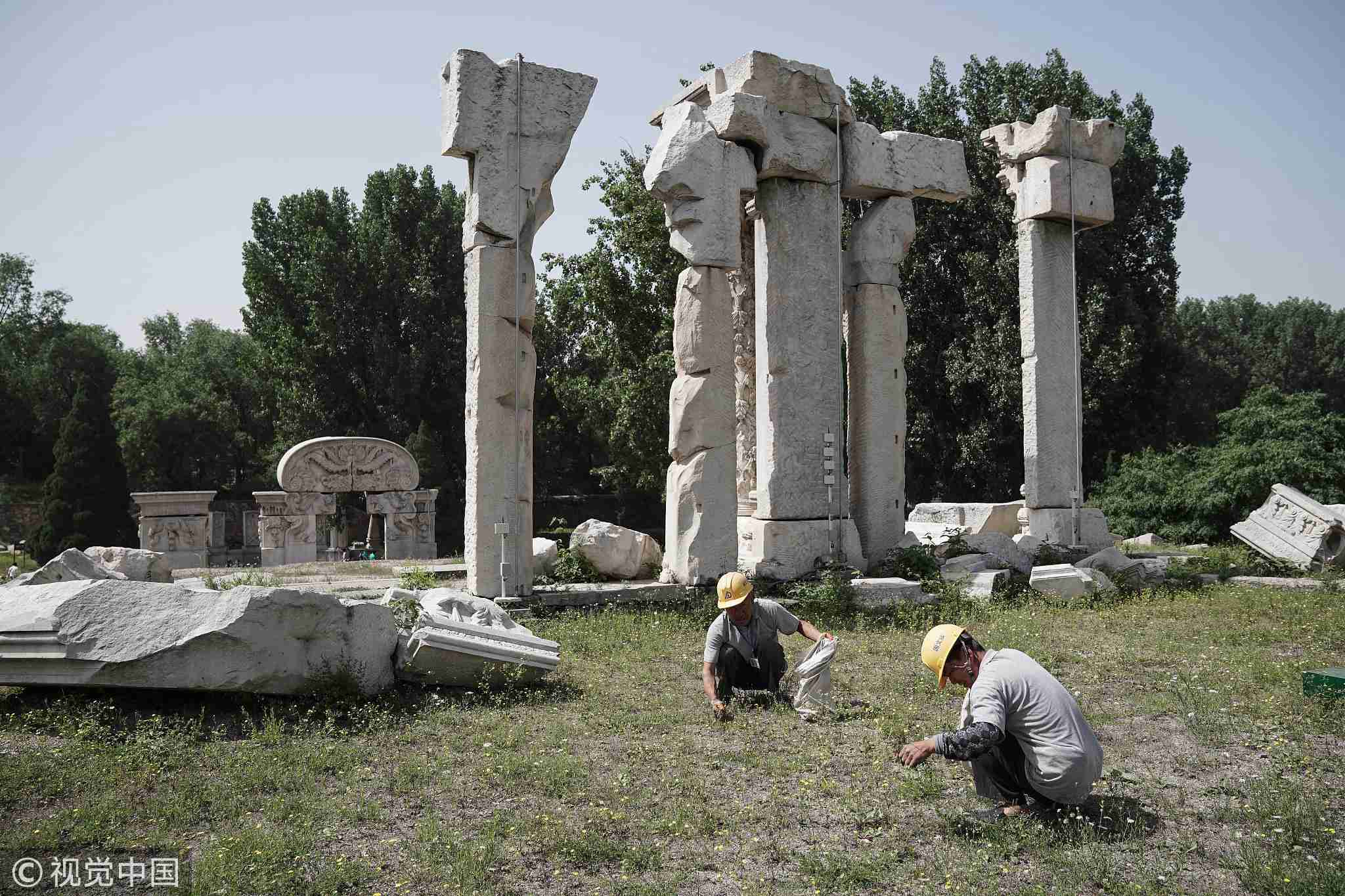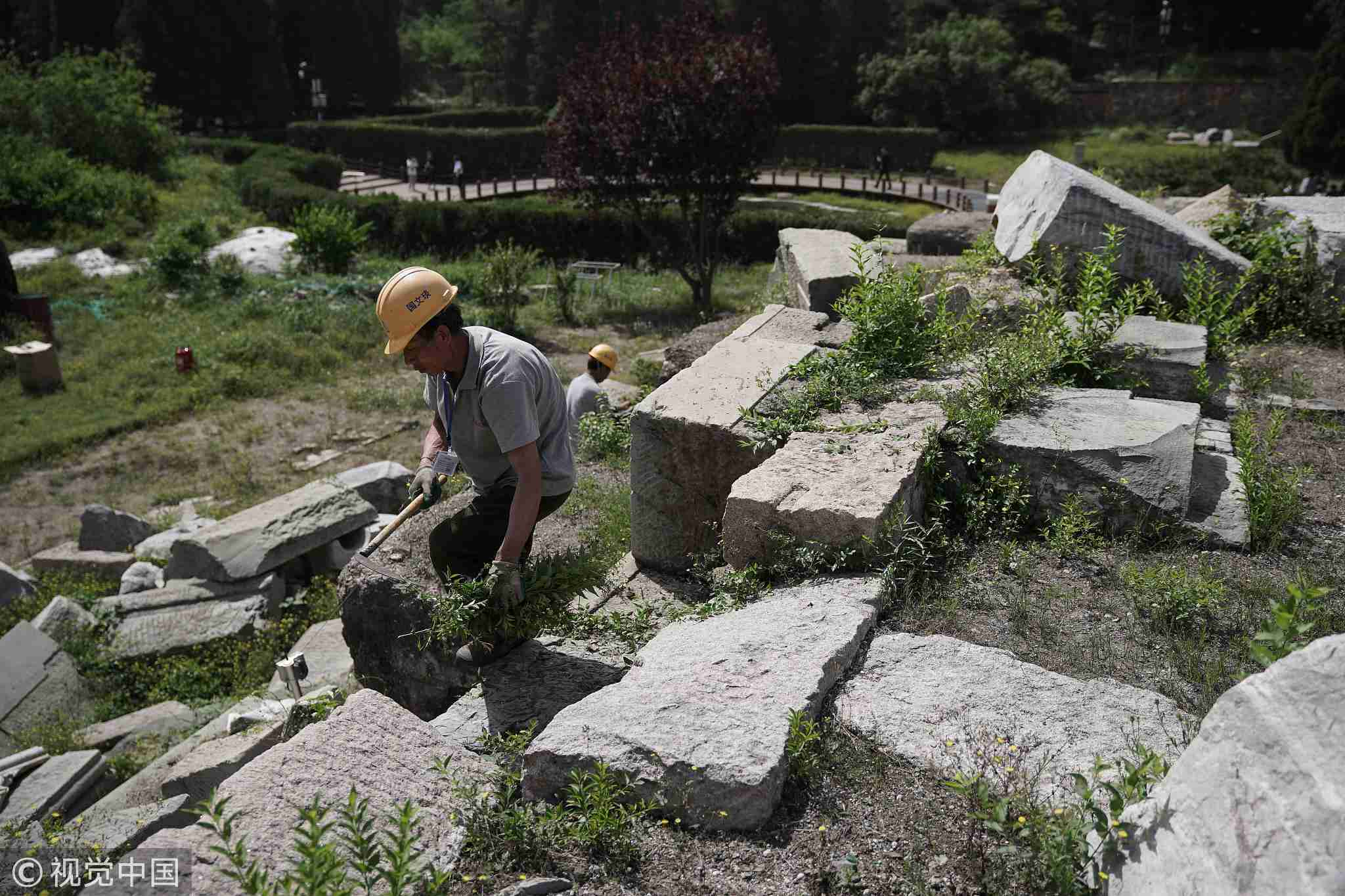
Culture
17:58, 08-Jun-2018
China's Old Summer Palace stones under reinforcement
By Ren Xueqian

The foundations that support the stone columns and gates of Yuanying Guan – or the Immense Ocean Observatory – have been strengthened recently to prevent the ancient ruins from collapsing.
Huge efforts have been invested in maintaining the structure for nearly 200 years, after Western aggressor troops almost totally wiped it out in the mid-19th century.
Current works are a part of a four-month-long preservation project led by the Yuanmingyuan Ruins Park (Old Summer Palace).
The observatory – which covers some 1,465 square meters – is an important site in the Xiyang Lou (Western Mansions) exhibition area of Yuanmingyuan. Its construction began under the reign of Emperor Qianlong from 1759-1783 during the Qing Dynasty (1644-1911).

Workers at site for the preservation work. /VCG Photo
Workers at site for the preservation work. /VCG Photo
Over time, heavy rain and other extreme weather conditions eroded the foundations, weakening the support structure for the standing columns. Park officials said thick vegetation, which was pulled out when work began last month, is another threat to the ruins’ well-being.
"The foundation of Yuanying Guan slowly disappeared, exposing the inner bricks, and left the columns without proper support," said Liu Xiaodong, Director of the Planning Department of the Administrative Office of Yuanmingyuan Ruins Park.
"Traditional skills will be used in the renovation. For instance, we’re using the same material to rebuild the bricks, which are made of earth, sand, sticky rice liquid, and lime,” Liu said while workers and experts will be looking to disturb the cultural relic as little as possible, a new drainage system will need to be installed to minimize the impact of the summer rains.
Yuanying Guan was initially built as a villa for one of Qianlong's favorite concubines. Based on historical records, it featured thousands of panes of colored glass, whilst the architecture was a mix of Western and Chinese.

Workers on site for preservation work. /VCG Photo
Workers on site for preservation work. /VCG Photo
According to Liu, most wooden traditional Chinese architectures inside Yuanmingyuan were burned by an invading foreign military in the 1860s. "What we're doing is preventing potential hazards in the future. If the columns really collapsed, the loss would be irreversible," Liu said.
Work began on Yuanmingyuan in 1707 and would continue for more than a hundred years. Nearly five times the size of the iconic Forbidden City in central Beijing, it was used as an imperial resort and a place where four Qing Dynasty emperors (Qianlong, Jiaqing, Daoguang and Xianfeng) often handled state affairs before the Second Opium War (1856-60).
Construction is expected to complete in late September. The area will not be closed to tourists during this time.

SITEMAP
Copyright © 2018 CGTN. Beijing ICP prepared NO.16065310-3
Copyright © 2018 CGTN. Beijing ICP prepared NO.16065310-3